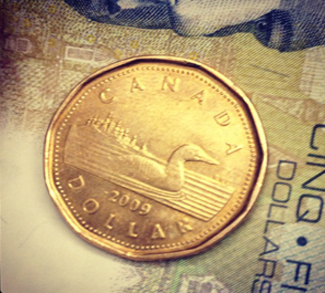Summary
One of President Obama’s campaign promises has come back to haunt him in Beijing. It seems that compelling the Chinese authorities to revalue the yuan is easier said than done.
Analysis
President Obama’s recently concluded summit in China included several conspicuous breaks with the past. Gone was the symbolic visit to the Dalai Lama, something his predecessors had been keen to carry out to stress the spiritual leader’s continued relevance. Also absent was any mention of the Taiwan Relations Act, a law that affords the disputed island an American security guarantee and continued arms sales.
These concessions, taken together with President Obama’s scant lip service to human rights, are intended as an offering to the Chinese government. In return, President Obama is seeking assurances that the government in Beijing will allow the yuan to appreciate against the dollar.
Of course, no such assurances were to be had. China’s monetary policy is somewhat of a special case, a lever that is closely guarded by the CCP. Even in the present environment of growing international pressure and potential long-term economic benefits, the CCP will continue to be extremely circumspect over allowing the yuan to appreciate.
The current dollar peg is not just a headache for Washington, but increasingly so for other Asian and BRIC countries as well. Since March, the Brazilian real and South Korean won have gained 42% and 35% respectively against the yuan, forcing governments to intervene in currency markets in the hope of maintaining their competitiveness vis-à-vis China. As the fallout from China’s grip on monetary policy continues to spill out from the boundaries of ‘Chimerica’ and into the global economy at large, Beijing will face more pressure to adjust the present rate of 6.83.
If the Chinese government does decide to allow the yuan to appreciate, the economic effects are a mixed bag. On one hand, the value of China’s massive dollar reserves will take a hit. On the other, resulting gains made by China’s renminbi reserves would help to compensate.
What’s most important, and the reason why monetary policy has taken on an air of sanctity for the CCP, is the effect that revaluation has on Chinese exports and by extension the CCP’s ability to manage unemployment. The government in Beijing is keenly sensitive to any potentially destabilizing force in Chinese society, whether it’s unrest in Xinjiang or rising unemployment. In the absence of Socialist ideology, economic performance has become the primary source of legitimacy for one-party CCP rule. Thus, no matter the economic or international pressures being brought to bear, if faced with a serious threat of mass civil unrest in China, Beijing can be expected to use all tools available to it to create jobs and drive growth.
The CCP’s stance on monetary policy poses a substantial problem for Washington. Normally, America would have the option of responding in kind with protectionist policies aimed at pressuring China to relent. However, the current U.S. federal deficit makes foreign purchasers of American debt indispensable to the U.S. administration. Thus, until Washington can achieve a balanced budget, the economic pressure that can be brought to bear against Beijing is moot.
Whether or not President Obama’s overtures will be reciprocated won’t be known for several months. All considerations of China’s recent assertiveness vis-à-vis their American counterparts aside, even from the weakest negotiating position the Chinese authorities will not allow their decision to appear to be influenced by America. However, given China’s improving economic outlook and the increasing international pressure for adjustment, a modest and incremental adjustment should come by next year.
Zachary Fillingham is a contributor to Geopoliticalmonitor.com



